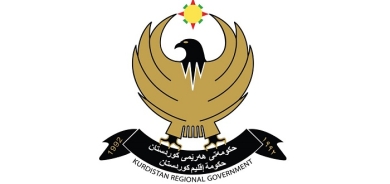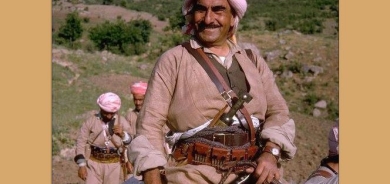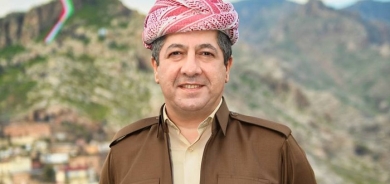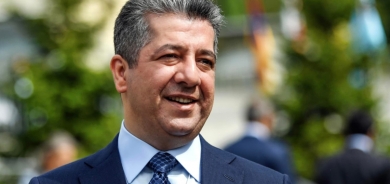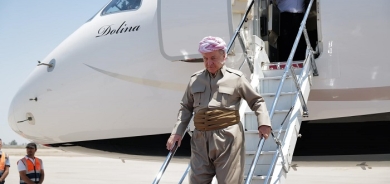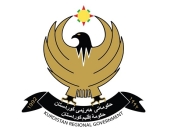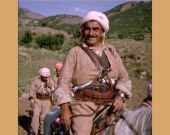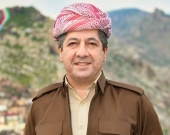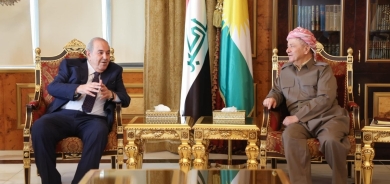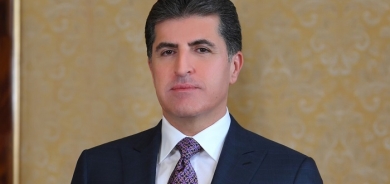Free and serious media is the spirit of democracy protection and the government must assist

Serious journalism in political communication has an important and central role
The main problem of developing countries is building a foundation for serious and free (independent) media. When the society begins the building of democratic process and providing the liberties, including freedom of expression, due to the transitional period they pass through, they neglect the independent media foundation, and directly as in the West, they leave it up to the market, which will then become under the influence of support of international NGOs, income of advertisement and funding from companies and businesspeople. In many developing countries, like ours, there are many political parties' media channels. As professor Carol Jackobies, international broadcast expert and member of Independent Media Committee in Kosovo, in a paper titled "Developing Media in the Post-Communist Countries" , has stated: "In the period those societies pass through, the press freedom will create both the oxygen of democracy and laughing gas, which will become a reason for passing-flow and commercial manipulation." This means that trying to copy the media from the developed countries like in the West to a developing country—even if it would be helpful for the support of democratic structure—in the other sense; it is a reason for creating obstacles to the democracy building process. In the Western countries, the policy of supporting the market as business for the media would be useful as the contemporary intellectual Jurgen Habermas notes; it is again a dangerous action and makes media to pay importance to the income of words perhaps more than to objective news and social awareness. Discussing the obstacles in front of serious, critical and strong media, evokes the question of how to remove the obstacles? As Thomas Jefferson has stated, "If I am allowed to choose between independent media and free parliament, I would opt for independent media." May be some of the officials and leaders in the developing or transitional countries blame journalists themselves for the obstacles in front the free and critical media and try to fool the society with their claims that journalists of the country are not up enough skilled to run free and independent media and do trade with words. This is also seen in our country. A neutral political observer can say that the political authority (legislation, executive, and judiciary) does not need to have serious, critical and strong media. In such cases, the oppositions and ruling parties do need such mass media. Therefore they insist on the assistance of government for the foundation of serious, critical and strong media, and their insistence does not pass their political parties frame of interests.
Media foundation is part of democracy foundation
If we assess the process of democracy, then on its political aspect democracy means providing the liberties – including freedom of expression and freedom of press-, and on the economic aspect, it means organizing the economy based on the market competition and providing equal opportunities to all. But on both aspects, the democracy-building process, in which some countries is called the process of building nation, needs the creation and organization of the country's infrastructure in order the elements which become the factors of the process, interact with each other and the process goes continuous in a balanced way so as to successfully pass this period. Therefore, it is the duty of the state institutions, to include the foundation of all those elements that become pillar of the democratic system, first and foremost, the separation of public affairs which includes all the state public institutions, from the private affairs which is demand of the individual and the civil society organizations. Their separation does not suggest that these two affairs won't have any interaction with each other anymore, rather, both private and public affairs come together in a larger sphere and discuss things with each other and reach a common understanding, which Habermas has called the "Public Sphere." In this sphere, the communication channels play an effective role in the creation of interaction between the public and private affairs, so as based on understanding, there will be public opinion as a truth which will become source of decision in the state. This means that the individuals and the civil society organizations make discussions with the state institutions to reach a common understanding about how to use the potentialities in the society for the prosperity of the society and how to use the available potentialities to solve the problems. About this aspect, Herbert Marcuse, in his book "One-Dimensional Man" states that the issue is not that one society is more wealthy or poor than another; it is rather about the potentialities in the society, which every society has its own special potentialities. Therefore the progress of the society is related to the mechanism of the functioning and organization of those potentialities. If they succeed here, then the society heads towards a proper society. And if they fail, the society will head towards crisis. Therefore, in order to head toward a proper society, the criticism theory should become the society's theory. But what does criticism theory mean? Criticism theory means to show the shortages in order they be solved. This brings up another question which is; how ought the solution to be? The solution is; through the building of understanding between the public institutions, individual and civil society, and not the rejecting of each other and the rejection of the system. The most important question will be: what creates this understanding? Of course, the communication channels and the existence of intellectuals and educated people in a practical way in the public atmosphere, and the means for the creation of this mass media is the language, language as a factor for understanding; not language as a subject, which means the use of language for a logical understanding, in which the invidious, civil society organizations and state institutions will reach a common understanding. It is because of this reason that the individual must not be prevented of its right who will have a good contribution in the factory of producing public opinion based on understanding.
If we take a look at the effect of mass media on the creation of political dialogue between the public institutions, individuals and civil society organizations, the mass media cannot play the important critical role and push the continuation of that political dialogue if it is not independent. This independency of the media system in the society needs self-regulations. In this self-regulations, the media channels must not only rely on the income of advertisement and income of words who aim to only outsell their words in the market and do not consider the important duty they have in that critical period. For instance, regarding the investment and business in the West, a research has shown that no businessman or firm would implement a project if there won't be at least 10-15% profit. That research states that the best media company has only 3-4% profit. How can a businessman or a company owner hold a media channel whilst it will have the least effect on the project? In this context, looking at our own situation and comparing to the companies in the Kurdistan Region, then we would say that our companies won't enter any project which they will not be sure of having 100% income profit. How would a businessman or a company owner enter a media channel whilst sometimes they even lose money? The companies in Kurdistan are not patriotic and don't work in the interests of the public; they use the public interests for enriching themselves under the curtains. In this reality of our situation, an important question one would pose to the government is; does our society need serious, brave and critical media? This is followed by another question that is asked to journalists: who have prevented you from building your own serious, brave and critical media? In response, journalists have to invite the government to give an understanding of meaning of serious, critical and brave press. In other words, journalists and the government should understand each other on these terms and know that citizens are not only buyers in the market and journalists the sellers of information to manipulate the selling of information they would like to. The important point that both should understand it is that if press is business or commerce, it is not a profitable company; rather it is a business or commerce that loses than making profits. Therefore journalists and government officials should understand each other on marketing that is in prior known that will end up with lose.
Media as unprofitable business
In order mass media abides by the journalism ethics and the law of journalism- not law of market which is based on competition, demand and supply- there should be a understanding between journalists and the government on two levels:
1- If media is called business in terms of independency and self-reliance, then such business, particularly for our country, don’t make any profit.
2- This business, which it is beforehand already known that it doesn’t make profit, should be independent. This non-profitable business is very crucial for the society. If journalist can get into an agreement with the government over these two point, as such that there should be a party that can refund the loss of that business, then the second level start, that the foundation of this business (serious and critical business) is once again rebuilt. But this rebuilding should be a law that is the results of the understanding between the government and journalists. The relations between these two actors should be organized by this new law. For instance, if journalism is in the interests of the government, the relations will continue. And if they are not in the governments interests, the relations are cut and the channel should be closed according to the understanding they have reached. This suggestion might look like theory for some people, but there is a single hope for its success: If with the start of new cabinet, some well-known journalists can sit down with the premier and do discussions with the 'government of the people'. The base of the meeting should be that 'the government of the people' won't exist if there won't be serious journalism. The understanding between the premier and journalists should take into consideration the following arguments:
1- The government will only be the 'government of people' if the government and the people reach and understand each other in the public sphere.
2- The understanding between people and the government needs correct information that are been read on reports, news, reportages, editorial pieces, in the means of media. In this case, the newspapers and other communication means should look to information as necessary for the society and transfer them as they are to the public. They shouldn’t play with the information in order to have more demand in the market.
3- True information or showing solutions in the reports and pieces of writers, should not intend to oppose the government or opposition, rather, the information are materials for thinking, understanding and later this unilateral thinking and understanding should be discussed together in the public sphere to create a common understanding for solving the problems.
4- Serious, active and critical journalists does not support the opposition and oppose the government, rather, in the public sphere it interrogates with both of them, in order to continue the dialogue between people, government and opposition. This continuation in political participation brings us towards continued progress of democratic culture.
5- Some might say that the public sphere may replace the parliament, because inside the parliament the deputies are discussing things on behalf of society. Contemporary thinkers say that the public sphere is not only for interrogating the government; it is also for interrogating the opposition. For example, an opposition party has promised during the election campaigns that it aims for equality and justice, but inside the parliament session hall it votes against men and women equality. Therefore it is important that the opposition parties be interrogated.
Reducing gap between government and serious journalism
Neglecting journalism on the excuse that the government shouldn’t intervene and that it believes in freedom of press has created a big gap between the government and the serious media. But this situation shouldn’t continue like this for the interests of democracy. Filling in this gap requires the mutual understanding. Government has to understand that without serious and critical media there won't be democratic process. Journalists have to understand that criticism means to show the shortcomings and trying to solve them through the understanding between people and the government, not each other's rejection. Because only the people have the right to reject the government and it is only them who can give legitimacy to the government. Another gap between government and the media is the weakening of democratic culture. Instead of reducing the gap between people and the government, it is the opposite. Another gap, is neglecting the market and the projects of private sector by the media. Even worse, the private sector is displayed as without any problems or shortcomings, such as importing expired foods.
Translated by: Ari Mamshae

